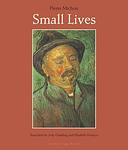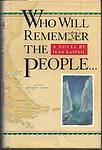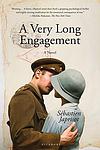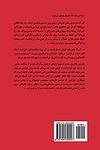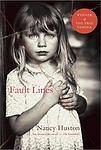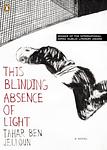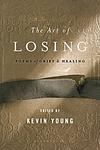The Greatest French "Historical fiction, Fiction" Books Since 1980
Click to learn how this list is calculated.
This list represents a comprehensive and trusted collection of the greatest books. Developed through a specialized algorithm, it brings together 290 'best of' book lists to form a definitive guide to the world's most acclaimed books. For those interested in how these books are chosen, additional details can be found on the rankings page.
Genres
Historical fiction is a genre of literature that combines fictional stories with real historical events, settings, and characters. These books often take place in a specific time period and are based on research and factual information, but also include imaginative elements to create a compelling narrative. Historical fiction allows readers to experience the past in a unique and engaging way, while also providing insight into the social, cultural, and political issues of the time.
Countries
Date Range
Reading Statistics
Click the button below to see how many of these books you've read!
Download
If you're interested in downloading this list as a CSV file for use in a spreadsheet application, you can easily do so by clicking the button below. Please note that to ensure a manageable file size and faster download, the CSV will include details for only the first 500 books.
Download-
1. Suite Française by Irène Némirovsky
"Suite Française" is a two-part novel set during the early years of World War II in France. The first part, "Storm in June," follows a group of Parisians as they flee the Nazi invasion. The second part, "Dolce," shows life in a small French village under German occupation. The novel explores themes of love, loss, and survival, and provides a unique perspective on life in France during the war. The book was written during the war but was not discovered and published until many years later.
-
2. Segu by Maryse Condé
"Segu" is a historical novel that delves into the lives of the Traore family, a noble lineage within the Bambara Empire of Segu (present-day Mali) during the late 18th and early 19th centuries. As the region faces the pressures of colonialism, the slave trade, and religious upheaval from both Islam and Christianity, the family members experience profound transformations in their personal identities and loyalties. Through their diverse and often conflicting paths, the novel explores the complex interplay of social, political, and cultural forces shaping West Africa during a period of intense turmoil and change.
-
3. L'amour, La Fantasia by Assia Djebar
"L'amour, La Fantasia" is a powerful and deeply personal exploration of the complex relationship between language, history, and identity. Through a blend of memoir, fiction, and historical analysis, the author delves into her own experiences as an Algerian woman, tracing the intertwined narratives of colonialism, feminism, and cultural heritage. With poetic prose and a profound sense of empathy, the book offers a poignant reflection on the struggles and triumphs of women in Algeria, ultimately celebrating the resilience and power of female voices.
-
4. Desert by J. M. G. Le Clezio
"Desert" is a sweeping narrative that spans across time and continents, telling the story of a young nomadic woman from the North African desert and her tribe's struggle against the encroaching forces of modernization and colonialism. Intertwined with her tale is the story of a descendant living in France, grappling with his own sense of identity and belonging. The novel paints a vivid picture of cultural erosion and the loss of traditional ways of life, while also exploring themes of resilience, memory, and the enduring connection to one's heritage amidst the relentless march of progress and change.
-
5. Small Lives by Pierre Michon
The book is a profound exploration of the rural French landscape and the lives of those who inhabit it, delving into the biographies of several characters from the 19th and 20th centuries. Through a series of interconnected stories, the narrative weaves a tapestry of human experiences, reflecting on themes of obscurity, the passage of time, and the search for meaning. The author's lyrical prose and deep understanding of the human condition paint a vivid picture of small lives that resonate with universal truths, revealing the extraordinary within the seemingly ordinary and the enduring impact of our brief existence on the world.
-
6. Leo Africanus by Amin Maalouf
This historical novel follows the life of a real-life Andalusian-born traveler of the 16th century, who is captured by Christian pirates and presented as a gift to the Pope. Renamed after the pontiff, he becomes a respected scholar and diplomat, navigating the complex cultural and religious divides of the Mediterranean world. Throughout his journeys, which take him from his birthplace in Granada to Fez, Timbuktu, Constantinople, and Rome, he witnesses the tumultuous events of his time, including the fall of Granada and the rise of the Ottoman Empire. His story is one of identity, belonging, and the universal quest for knowledge and understanding amidst a backdrop of conflict and change.
-
7. Who Will Remember The People... by Jean Raspail
"Who Will Remember The People..." is a poignant narrative that delves into the history and demise of a fictional South American indigenous tribe. The book explores the themes of cultural extinction, colonialism, and the inevitable march of modernity as it tells the story of the last members of this tribe, their struggles to preserve their way of life, their memories, and their identity in the face of external pressures and internal decay. Through its evocative prose, the novel serves as a meditation on the loss of ancient traditions and the often-unseen human cost of progress.
-
8. L'acacia by Claude Simon
The novel is a complex and fragmented exploration of memory and war, weaving together the personal and historical experiences of a soldier who, after surviving the battlefields of World War I, embarks on a journey to reclaim the body of his brother killed in action. As the narrative shifts across time and space, it delves into the soldier's recollections of his childhood, his experiences during the war, and the broader impacts of conflict on individuals and society. The book's non-linear structure and rich, descriptive language challenge the reader to piece together the story, reflecting the disorienting and enduring effects of war on the human psyche.
-
9. Out Of The Dark by Patrick Modiano
In "Out of the Dark," the narrative unfolds around a man's introspective journey into his past, where he reflects on a transient and intense romance with a mysterious woman named Jacqueline. The story is set against the backdrop of post-war Paris, a city that mirrors the protagonist's feelings of dislocation and search for identity. As he revisits old haunts and recalls the enigmatic figures from his youth, the man grapples with the ephemeral nature of memory and the elusive quest for a sense of belonging. The novel weaves a haunting tale of love, loss, and the shadows that linger long after the people and moments have vanished into the dark recesses of time.
-
10. A Very Long Engagement by Sebastien Japrisot
The novel is a poignant exploration of love and perseverance set against the backdrop of World War I. It follows a young Frenchwoman who refuses to accept the official story that her fiancé has died on the battlefield. Despite being told he was executed for self-mutilation to escape military service, along with four other condemned soldiers, she embarks on a relentless quest to discover the truth. Her journey reveals a tangled web of deceit, cover-ups, and unexpected alliances, as she holds onto hope that her beloved is still alive. Through her unwavering determination, the narrative delves into the horrors of war and the enduring power of love.
-
11. All The World's Mornings by Pascal Quignard
The book is a historical novel that delves into the life of the 17th-century French composer and violist Monsieur de Sainte Colombe and his relationship with his two daughters, as well as the famous musician Marin Marais. After the death of his wife, Sainte Colombe retreats into his music and his garden, seeking solace and meaning in his solitary existence. His passion for music leads him to reject the court's opulence and the advances of society. The narrative explores themes of artistry, mentorship, and the search for perfection as it follows the complex dynamics between the reclusive Sainte Colombe, his protégé Marais, and the haunting presence of the past that reverberates through their music.
-
12. Le Passeur De Lumière by Bernard Tirtiaux
The novel tells the story of Nivard de Chassepierre, a master glassmaker in the Middle Ages, who embarks on a journey of self-discovery and artistic fulfillment. Tasked with creating a magnificent stained glass window, he faces numerous challenges, including the rigid constraints of his era, the complexities of his craft, and the tumultuous backdrop of social and political unrest. As he pursues his passion for creating light-infused masterpieces, Nivard must navigate the intricacies of human relationships and the pursuit of excellence in his art, all while striving to leave a lasting legacy through the beauty and transcendence of his work.
-
13. La Part De L'autre by Éric-Emmanuel Schmitt
The book presents an intriguing alternate history, exploring two parallel narratives: one in which Adolf Hitler is accepted into the Academy of Fine Arts in Vienna, leading to a life as a modest artist, and another where he is rejected, setting him on the path to becoming the Führer of Nazi Germany. This thought-provoking exploration examines the impact of seemingly small events on the course of history and the nature of evil, as it juxtaposes the life Hitler could have led with the infamous one he did, raising questions about destiny, choice, and the inherent potential for good and evil within us all.
-
14. Grey Souls by Philippe Claudel
Set against the backdrop of World War I in a small French town, the novel delves into the cold and somber atmosphere of a community living in the shadow of conflict. The story revolves around the mysterious death of a young girl, whose body is found by the river, and the subsequent investigation that unfolds years later. The narrative, rich with melancholy and introspection, is told through the eyes of a policeman who becomes obsessed with the case. As he delves deeper into the town's secrets and the grey souls of its inhabitants, the lines between victim and perpetrator blur, revealing the complex nature of guilt and the human psyche amidst the pervasive despair of war.
-
15. The Scortas' Sun by Laurent Gaudé
"The Scortas' Sun" is a sweeping family saga set in the heart of the Italian South, where the Scorta family, marked by a history of poverty and criminality, struggles to achieve a sense of honor and prosperity. The narrative spans several generations, exploring themes of legacy, identity, and the relentless pursuit of a better life. Despite the harshness of their environment and the stigma attached to their name, the Scortas are bound by a fierce familial loyalty and a determination to ensure that their descendants enjoy the dignity and opportunities that they themselves were denied. The novel delves into the intimate moments and grand dreams that shape the family's destiny, painting a vivid portrait of a clan's unyielding resilience in the face of adversity.
-
16. The Kindly Ones by Jonathan Littell
The book in question is a fictional memoir of a former SS intelligence officer who recounts his experiences during World War II, offering a detailed and disturbing insight into the machinery of the Nazi genocide from the perspective of a perpetrator. The narrative delves into the protagonist's complex psychology and his role in the atrocities committed during the Holocaust, as well as his post-war life. The novel is notable for its extensive historical research, moral ambiguity, and the controversial and unflinching portrayal of the horrors of the time.
-
17. Fault Lines by Nancy Huston
"Fault Lines" is a novel that delves into the complex layers of family history and the impact of past traumas on the present. The narrative unfolds through the eyes of four different children from successive generations of the same family, each chapter moving back in time to reveal the secrets and challenges faced by their ancestors. The story explores themes of identity, memory, and the inherited nature of suffering, as the protagonists grapple with the legacies of war, displacement, and personal tragedy that ripple through their lineage. The novel's unique structure and poignant storytelling invite readers to reflect on how the fault lines of history can shape individual lives and relationships across generations.
-
18. Sarah's Key by Tatiana de Rosnay
The novel intertwines two stories: one of a young Jewish girl named Sarah, who is brutally arrested with her family during the Vel' d'Hiv Roundup in 1942 Paris, and the other of an American journalist, Julia, living in contemporary France. As Julia investigates the roundup's history for an article, she uncovers the harrowing tale of Sarah, who locked her younger brother in a cupboard to protect him from the police, promising to return. The narrative reveals the impact of this historical event on Sarah's life and connects it to Julia's own family history, leading to profound revelations that change Julia's life. The book explores the themes of memory, guilt, and the legacy of the Holocaust.
-
19. This Blinding Absence Of Light by Tahar Ben Jelloun
The novel delves into the harrowing experience of a man who, after participating in a failed coup, is sentenced to life imprisonment in a Moroccan desert concentration camp. In this hellish environment, he and his fellow inmates endure unimaginable suffering, with the narrative exploring themes of survival, hope, and the human spirit's resilience. Through the protagonist's eyes, the reader witnesses the brutality of his conditions, the struggle to maintain sanity in the face of relentless darkness, and the power of storytelling as a means of preserving one's identity and humanity amidst the most oppressive circumstances.
-
20. Un Attieké Pour Elgass by Tierno Monenembo
"Un Attieké Pour Elgass" is a heartwarming and thought-provoking novel that follows the journey of Elgass, a young Guinean boy, as he navigates the challenges of growing up in a small village. Faced with poverty, cultural traditions, and the desire for a better life, Elgass embarks on a quest to fulfill his dreams and find his place in the world. Through vivid storytelling and rich character development, the book explores themes of identity, resilience, and the power of human connection.
-
21. The War by Marguerite Duras
This novel delves into the profound and harrowing experiences of a French woman waiting for her husband's return from a Nazi concentration camp at the end of World War II. Set against the backdrop of a war-torn Europe, the narrative explores themes of love, loss, and the resilience of the human spirit. Through a blend of diary entries, recollections, and introspective musings, the protagonist navigates the complexities of her emotions and the changing world around her. The story is a poignant reflection on the impact of war on individual lives and the enduring hope for reunion and healing amidst devastation.
-
22. The Art Of Losing by Alice Zeniter
The novel explores the complex layers of identity, belonging, and the legacy of colonialism through the story of a French-Algerian family across three generations. It delves into the life of a young woman who grapples with her grandfather's painful past as a harki, an Algerian who fought for the French during the Algerian War of Independence. As she uncovers her family's history, she confronts the silence and trauma that have shaped their experiences of dislocation and cultural disconnection. The narrative weaves between past and present, revealing the enduring impact of historical events on individual lives and the struggle to reconcile with one's heritage in a modern world.
-
23. Paris Nocturne by Patrick Modiano
This novel unfolds as a mysterious and evocative narrative centered around a young man who becomes embroiled in a perplexing incident one night in Paris. After being hit by a car, he finds himself plunged into a deep investigation of his past, guided by cryptic clues and shadowy figures who drift in and out of his life. As he delves deeper, the boundaries between past and present blur, leading him on a haunting journey through the streets of Paris. The city, with its hidden corners and forgotten stories, becomes a character in its own right, enveloping the protagonist in a labyrinth of memory, identity, and intrigue. This atmospheric tale weaves together themes of memory, loss, and the search for truth, all set against the backdrop of a beautifully rendered Parisian nightscape.
-
24. The Kindly One by Jonathan Littell
"The Kindly Ones" is a controversial and provocative novel that follows the life of a former SS officer, who is of French and German descent, during and after World War II. The narrative is a first-person account of the atrocities he committed and witnessed during the Holocaust, presenting a chilling exploration of the human capacity for evil. The story also delves into his post-war life, his struggle with guilt, and his attempts to rationalize his actions. The novel is a profound and disturbing examination of the darkest aspects of human nature, history, and memory.
Reading Statistics
Click the button below to see how many of these books you've read!
Download
If you're interested in downloading this list as a CSV file for use in a spreadsheet application, you can easily do so by clicking the button below. Please note that to ensure a manageable file size and faster download, the CSV will include details for only the first 500 books.
Download



